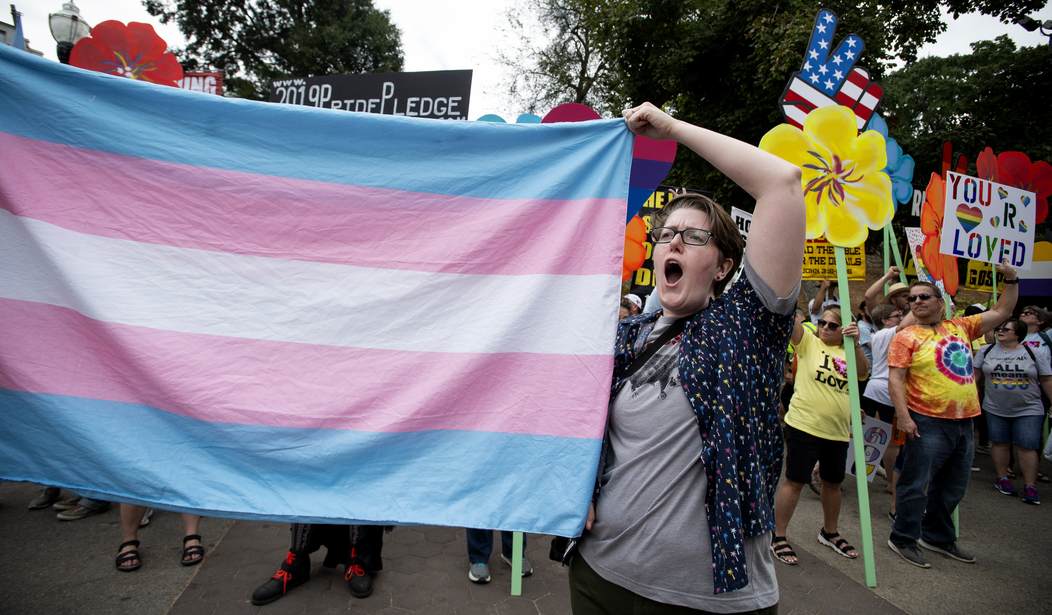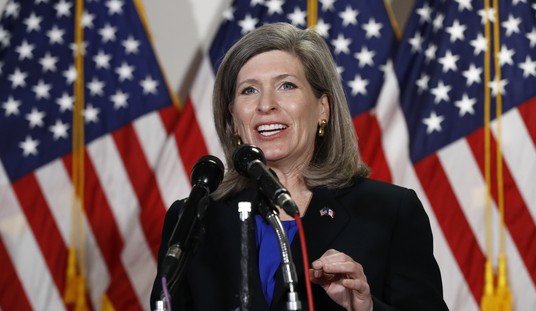The opinion piece is headlined "The Strange Report Fueling the War on Trans Kids." I don't know if author Lydia Polgreen selected the headline but it certainly matches the tone and language of the piece. This is an attempt to dismiss the conclusions of the Cass Review by an opinion journalist who is consistently one of the most progressive voices at the Times. For those not familiar with Polgreen, she's the former editor of HuffPost. Here's how Wikipedia describes her personal life:
In November 2017, Polgreen was nominated to Out magazine's "OUT100" for 2017 in recognition of her work and visibility. Rejecting rigid binaries, she identifies as both Black and mixed race; as both American and African; as a woman, though her masculine gender expression often leads people to assume she is a man; and as a lesbian, though she has also had heterosexual romantic relationships.
In any case, Polgreen clearly intends this to be a takedown of the Cass Review but if you're expecting a detailed, point by point medical or scientific argument, you won't get it here. Mostly what this opinion piece attempts to do is argue that the report itself is political. And so we get paragraphs like this.
The right has made use of Cass’s work for its own ends. Preliminary versions of her team’s findings were cited in amicus briefs from conservative legal groups like the Alliance Defending Freedom, which has been central to assaults on abortion, contraception, and gay and transgender rights. It seems likely that the report and its arguments will be load-bearing beams in the case that Tennessee’s attorney general, Jonathan Skrmetti, makes at the Supreme Court later this year. How did this document become such a powerful piece of ammunition in American reactionaries’ war on trans young people?
The war on trans young people by American reactionaries. That's the framework here though Polgreen then has to explain how this report is really a product of British rather than American transphobia, starting with the case of a detransitioner named Keira Bell.
The Bell case further stoked what was already a climate of transphobia in Britain, where conservative politicians have made common cause with some women’s groups, and the celebrity author J.K. Rowling, to claim without convincing evidence that transgender women endanger other women and that children born as girls are being seduced, often while suffering serious mental illness, by what they call “gender ideology” into believing they are transgender boys.
Inconveniently, Polgreen also has to explain that in Britain even people on the left agreed the Cass Review seemed reasonable. Here's the big turning point in her argument. Having examined it primarily in terms of political reactions, she pronounces it a fundamentally political document.
Social conservatives welcomed the report. But it has also been heralded in some liberal quarters in Britain, where even the Labour Party has supported its conclusions, and around the world as a model of open-minded rationalism, of well-intentioned — progressive, even — unbiased scientific inquiry attempting to provide information in young people’s best interests. This, they declare, is what following the science and the evidence looks like.
But is it? In an effort to evaluate the Cass report’s findings and recommendations, I spent the months since it was released poring over the document, researching the history of transgender medicine and interviewing experts in gender-affirming care as well as epidemiologists and research scientists about the role of scientific evidence in determining care standards. What I have come to realize is that this report, for all its claims of impartiality, is fundamentally a subjective, political document.
Only occasionally does Polgreen step away from politics to touch upon what it is we're really talking about here, Children deemed too young to vote, drink, get a tattoo, rent a car or be held responsible as adults in court (on the grounds that their brains are not fully formed yet) must be allowed to make life-changing medical choices about their gender. Polgreen never mentions an appropriate lower age threshold for these decisions, which is telling in itself.
Children with gender dysphoria present a different set of difficulties. Medical care standards for adults are usually adapted to children and adolescents, but the question of informed consent is more fraught: Children and adolescents are given far less autonomy than adults. Still, in much of medicine the subjective experiences of children, not just doctors’ objective observations, have moved to the center of their care, even as the role of parents and the broader community of care is taken into account to a much greater degree than with adults.
The experience of many adults who've been though this particular wringer belies what she is claiming here. In America, parents wishes are not considered heavily in these cases unless they agree with the child. Any parent who dares to contradict the child's wishes is deemed transphobic and bullied with arguments like "would you rather have a dead daughter or a live son?" No doubt, Polgreen herself would join in these arguments if a parent objected. She doesn't actually mean what she's saying here.
Polgreen must know there are parents whose wishes are not considered valid by people like herself, but if so she never mentions it. And indeed, Polgreen goes on to decry any kind of gatekeeping, i.e. failure to immediately give children whatever medical treatment they want. Even the act of questioning children about their beliefs in the very first meeting with a clinician is taken as evidence that there is already too much pushback on trans identity in the system.
A number of participants in focus groups convened for the purpose of the report said they felt that they had to “prove” to clinicians that they were transgender.
“They probed me so hard for any ‘alternative’ reasons I may have been trans initially (such as other childhood trauma, with emphasis on sexual assault),” one participant said. “It just felt like they were finding any reason to ‘disprove’ me being trans in my first appointment.”
And this brings us to the real conclusion of this piece, Polgreen's claim that the entire Cass Review is political or maybe religious but definitely not medical or scientific.
As much as Cass’s report insists that all lives — trans lives, cis lives, nonbinary lives — have equal value, taken in full it seems to have a clear, paramount goal: making living life in the sex you are assigned at birth as attractive and likely as possible. Whether Cass wants to acknowledge it or not, that is a value judgment: It is better to learn to live with your assigned sex than try to change it. If this is what Cass personally believes is right, fair enough. It can charitably be called a cultural, political or religious belief. But it is not a medical or scientific judgment.
The phrase "sex you are assigned at birth" is a giveaway to Polgreen's own politics. People are not assigned a sex at birth, as if doctors are flipping a coin. Rather, each child's manifest and usually obvious sex is recognized at birth. In fact, in most cases the sex of the child is identified long before birth as the result of an ultrasound. The ultrasound technician can always tell though the choice of knowing the baby's sex in advance is usually left up to the parents. Maybe they'll start calling it sex assigned in utero next.
In any case, Polgreen's entire conclusion can just as easily be turned back on herself.Her words apply better to her own opinion piece than to the Cass Review.
Whether Polgreen wants to acknowledge it or not, that is a value judgment: It is better to change your assigned sex than to try to live with it. If this is what Polgreen personally believes is right, fair enough. It can charitably be called a cultural, political or religious belief. But it is not a medical or scientific judgment.
Polgreen's readers don't seem to be overwhelmed by her arguments. Here's the top (most upvoted) response among NY Times' subscribers.
Using language like "the war on Trans kids" really gives away the bias behind this piece. No one is warring on kids, they are trying to protect confused and vulnerable kids from making life-altering decisions that they are not mentally equipped to comprehend. And much of the medical guidelines in the states are the product of trans activists not scientific and medical research. Europe has come to its senses on this subject. The state bans may or may not be helpful in the US, but it will probably take a few high-profile malpractice lawsuits to shut it down nationwide.
Here's another:
There are a lot of liberal parents--like me--who are alarmed at the experiments that are happening on children and how other more progressive countries are reaching different conclusions. It's completely possible to support trans rights, disagree with JK Rowling, and believe that one must be an adult before any medical treatments. Puberty blockers are not just a pause, they have a long term medical impact and should not be given to kids.
We have age of consent laws for a reason:
I've personally witnessed children fall to "social contagion" in changing their gender identity, and then later rolling that decision back, as children tend to do. We prohibit adolescents from making so many life-altering decisions for themselves because their brains, hormones, bodies, sense of reason are not fully formed yet. Why would this be any different? The term "age of consent" exists for a reason.
Last one:
My friend's experience with this over the past ten years starting when his child was about age 12 is horrifying. The current pressure on parents and children to allow this sort of intervention is child abuse. The lesser harm is in waiting until they are adults. And while we're at it, what happened to loving your body as it is?
If Polgreen were less of a partisan she would at least acknowledge some of these problems with her arguments. Fortunately it seems she's not fooling anyone.








Join the conversation as a VIP Member